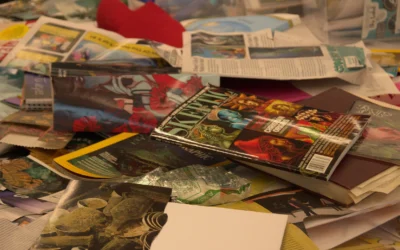When you think of a composer, you can’t help but picture a creative genius that experiences flashes of inspiration and effortlessly creates musical art. In reality, these creative flashes are only a small part of the composition process. Allan Gilliland, a composer and chair of the music department at MacEwan University, says that inspiration is only a small part of music composition. For him, the bulk of it is actually using theory to map out his ideas. He is eager to share his process during “Bringing Black Dots to Life: A Composer’s Journey,” his presentation at MacEwan’s Alberta College Campus on Oct. 21.
Being a freelance composer, Gilliland has written a cornucopia of musical works, including concertos, orchestras, and dramatic plays.
Some of his work appeared in this year’s production of Tom Stoppard’s Arcadia at the Citadel Theatre.
As a composer, he constantly has music playing in the back of his head, “feeding his ear,” he says.
His job essentially never stops. Every morning, without fail, from 5 a.m. to 8 a.m., he is writing music. Most of Gilliland’s pieces are started on the piano before he worries about the other instruments.
“Sometimes it starts out with just a melodic fragment or theme in my head. I can usually come close to finishing the piece on piano,” says Gilliland. “For a while it looks just like a piece of piano music until I translate it and blow it up for the orchestra.”
One skill that composers must be able to master is predicting what a certain melody will sound like with multiple instruments as opposed to just one.
Gilliland decides what journey the melody will take with various instruments. Sometimes it is manipulated or it bounces between different sections in the orchestra. While fleshing out the piece, he has to constantly take pitch and volume into account.
“If you have a melody, you can give it to a whole bunch of different instruments and have them play it in different registers. That makes it that much more powerful,” says Gilliland.
After Gilliland has a piece of written music, he eventually develops the piece with a full orchestra. For him, this is the most extraordinary part of being a composer.
“I have a computer program that will play me orchestral samples of what a melody will sound like with many grouped instruments, but it’s nothing as wonderful as standing in front of 60 actually real-life players,” he explains.
The one aspect of the craft that Gilliland wants to stress is that anyone who has a basic understanding of theory can compose a piece of music.
“I’m trying to get away from that super-romanticized image of Beethoven writing only from inspiration,” he says. “I think if you have basic theory, you can and should compose your own music.
There’s no better way to understand music.”
This means actually taking the time to practice theory and attaining a firm understanding of it. For some, this can be somewhat of a dreadful task.
“The thing about theory is it’s just math and a lot of A plus B equals C,” says Gilliland.
During his presentation, Gilliland will take the audience through his process of creating an orchestral piece and show some of his works in their earlier stages to demonstrate how they matured into full compositions. Gilliland always notices that the audience is perplexed at the start of his seminar.
“When people come to hear a composer talk, they have this mystified face that basically says, ‘I have no idea how you do this,’” says Gilliland. “I try to show them to the best of my ability how we, as composers, work.”
An element that Gilliland wants to stress about his presentation is that it is not exclusively for composers or musicians.
“I won’t be flinging sheet music or anything like that,” he says. “This is talk for anyone interested in music.”





0 Comments